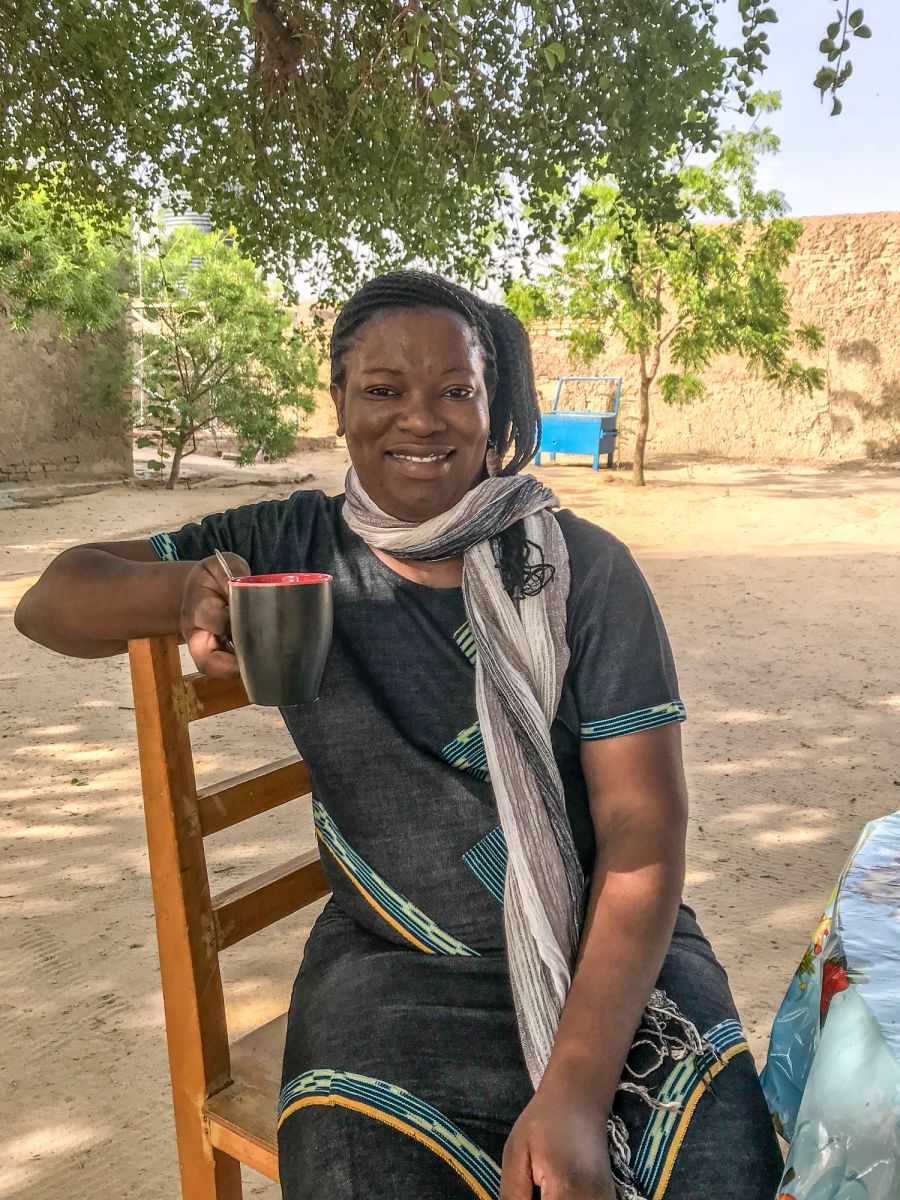“Accountability is Everyone’s Responsibility” – Coffee with Carine Nzeuyang
Carine has led the design and implementation of perception surveys undertaken by Ground Truth Solutions in collaboration with the CHS Alliance to help track the implementation of the humanitarian response against its commitments to accountability to affected people. Ahead of her new role in the Fragility, Conflict and Violence Team of the World Bank, we caught up with her over a coffee to hear about humanitarian accountability in Chad.
Can you tell us a bit about your background and how you got involved with the joint GTS-CHS Alliance project in Chad?
I started working in humanitarian action in 2015, when I was working for Care International in Chad as a monitoring, evaluation, accountability, and learning (MEAL) coordinator. Among other tasks, I was responsible for establishing and implementing guidelines to monitor accountability to affected people in-country programmes. I must admit, I found it difficult to monitor progress in terms of accountability as I felt that no well-developed methodology existed to this end. This is why I became passionate about tracking progress towards accountability. Thus, I was excited to hear about the joint GTS-CHS Alliance project: a perfect opportunity to give shape to the theoretical concept of measuring accountability.
In your words, what is the aim of the project and why is it unique?
For me, the aim of this project is to raise awareness among humanitarian actors, at every level, on what their behaviour towards the people they serve should be. In my experience, most humanitarian staff in Chad were not aware of humanitarian standards on quality and accountability ̶ and even if they were, it was considered to be the responsibility of top management and more specifically the MEAL department.
After one year of implementation, I can say the project is unique because almost all stakeholders (staffs, local leaders, affected people) now understand that accountability is everyone’s responsibility and should be a basic right for affected populations. Moreover, the stakeholders are now also aware of their role in making accountability a priority. My feeling is that in Chad, the humanitarian response is moving towards more effective two-way communication. Not just because GTS is asking affected people whether they hear back from humanitarian actors when they provide feedback, but also because humanitarian actors understand it is important for an accountable humanitarian action.
How do local communities react to being asked for their opinions, views and priorities?
Communities warmly welcomed the perception surveys. They took it as an opportunity to have a voice in the humanitarian response around them. They were even more grateful for the feedback sessions, where we presented back the results as well as the reactions and actions of humanitarian actors – something that is, unfortunately, not often done for data collection exercises.
What were some of the challenges associated with the survey, if any?
As all the humanitarian partners active in the field were involved in the preparation of the exercise and local authorities were informed at every stage of the project, we did not encounter big problems in data collection. There were however external factors that threatened our methodology, such as population movements in the Lake region or being unable to access communities due to security issues in the East.
Was there anything surprising or unexpected regarding the results?
The first round of survey showed that information sharing in Chad had a very high perception score when compared to other countries where GTS does similar exercises. The score was a striking outlier but a welcoming one especially in a context where the concept of accountability is not well known.
How were the results welcomed by stakeholders and the affected population?
It was quite challenging to discuss the results with humanitarian actors as the perception scores shared by affected people were low in several cases. Humanitarian actors were afraid donors would take these to mean that they were not doing a good job. We had to explain that gathering perception data should not to be compared with monitoring general programme performance. Accountability is about humanitarian actors considering what people feel about the support they are receiving. In contrast, the local communities were quite pleased, because at last, their voices were heard. They were especially interested to follow how humanitarian actors reacted to the scores.
Can you give us a few examples of the impact the project had on the humanitarian response in Chad?
A good example is the Lake Region where the perception score for information sharing was low. Stakeholders realised that mechanisms used to share information were not very effective. For example, the World Food Programme outsourced communication activities to partners who were only in contact with community leaders. Hearing the results, they introduced new mechanisms and now, for example, information is shared through community meetings as well. Also, it was identified that in the Lake Region, access to phones is quite low and people prefer to share their complaints through community mechanisms. As a result, the second survey showed progress on the perception indicators of information sharing and knowing how to make complaints.
What motivates you personally to drive accountability and what is your next challenge?
As mentioned earlier, as a MEAL coordinator at Care International in Chad, I saw the challenges organisations face when it comes to accountability. Working for GTS and being involved in the joint GTS-CHS Alliance project showed me how humanitarian work has an even greater value when it is done right and follows the nine commitments of the Core Humanitarian Standard. In itself, giving is good, but being accountable to the people you give to is the best way to provide assistance.
Overall, I believe we have made great progress, and I am a bit sad to leave the project and not to see it through as there is still a lot to do to meet the CHS. Nonetheless, I am confident efforts will continue and will be multiplied by stakeholders in-country.

